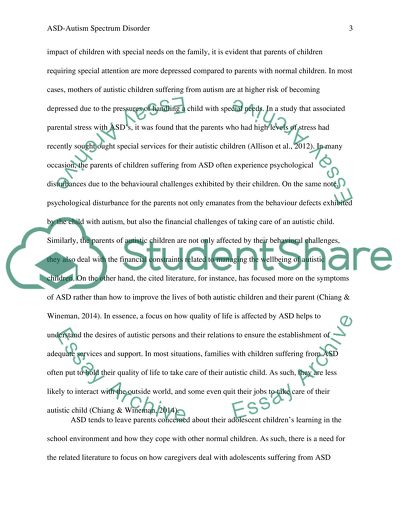Cite this document
(“Psychotherapeutic needs of parents/carers of children on the autism Literature review”, n.d.)
Psychotherapeutic needs of parents/carers of children on the autism Literature review. Retrieved from https://studentshare.org/psychology/1698961-psychotherapeutic-needs-of-parentscarers-of-children-on-the-autism-spectrum
Psychotherapeutic needs of parents/carers of children on the autism Literature review. Retrieved from https://studentshare.org/psychology/1698961-psychotherapeutic-needs-of-parentscarers-of-children-on-the-autism-spectrum
(Psychotherapeutic Needs of parents/Carers of Children on the Autism Literature Review)
Psychotherapeutic Needs of parents/Carers of Children on the Autism Literature Review. https://studentshare.org/psychology/1698961-psychotherapeutic-needs-of-parentscarers-of-children-on-the-autism-spectrum.
Psychotherapeutic Needs of parents/Carers of Children on the Autism Literature Review. https://studentshare.org/psychology/1698961-psychotherapeutic-needs-of-parentscarers-of-children-on-the-autism-spectrum.
“Psychotherapeutic Needs of parents/Carers of Children on the Autism Literature Review”, n.d. https://studentshare.org/psychology/1698961-psychotherapeutic-needs-of-parentscarers-of-children-on-the-autism-spectrum.


